Scabies squared: Patient infected twice at KCH, praises staff for quality care
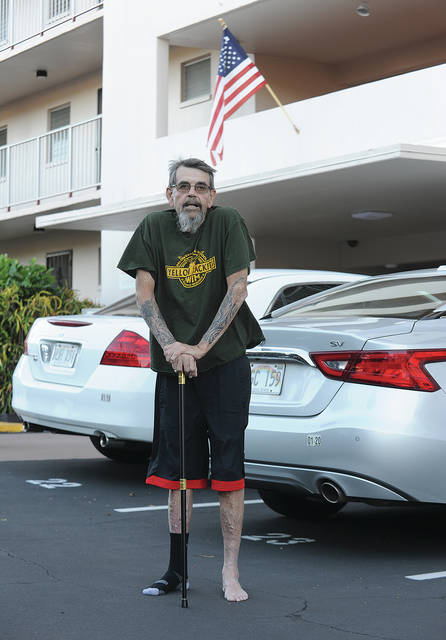
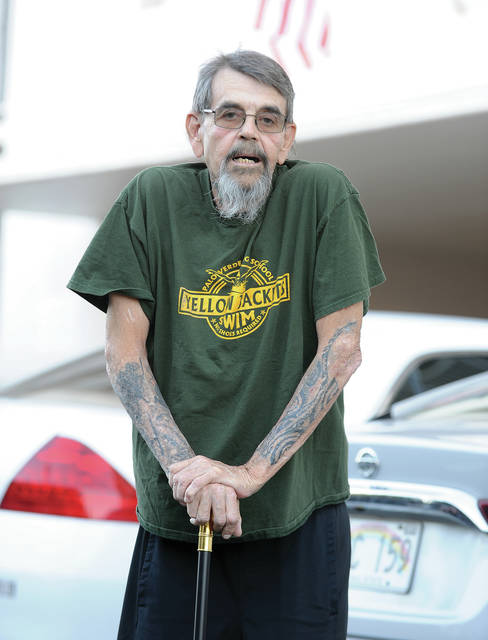
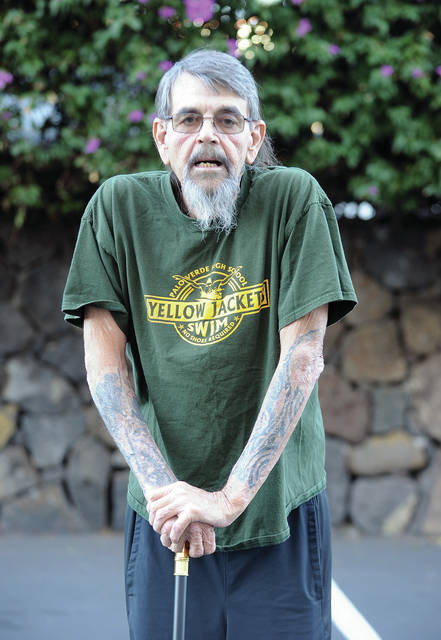
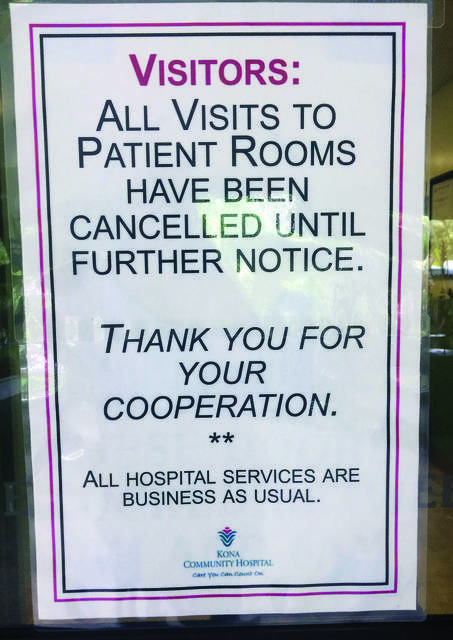
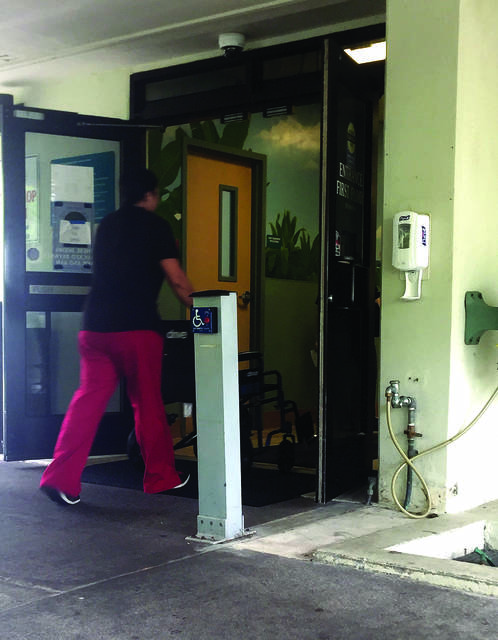
KAILUA-KONA — Jim Smallwood was a temporary resident at Kona Community Hospital and the night staff realized they had a serious problem on their hands, or perhaps more aptly stated, under their skin.
KAILUA-KONA — Jim Smallwood was a temporary resident at Kona Community Hospital and the night staff realized they had a serious problem on their hands, or perhaps more aptly stated, under their skin.
A scabies outbreak at KCH now approaching two months in duration can be traced back to Nov. 19. But it was a few nights later Smallwood realized from his hospital bed that something was up.
“I was in there the night they kind of had the scare and everybody was getting ready,” he recalled. “They were starting to gown up and all that. (Patients) didn’t know what was going on because so much was happening late at night.”
Instead of standard protocol, doctors and nurses started setting up outside hospital rooms, not entering until they were fully clad in gowns and gloves as well as equipped with special bags to help manage contamination.
“At the same time, the nurses were coming in trying to explain it to you,” Smallwood remembered. “All of the sudden, you’re in isolation going, ‘What the hell did I do?’ So it was kind of a weird feeling at that point.”
But the care provided did not suffer, Smallwood added. In fact, it improved. So much so that Smallwood, who is 66 years old, feels it was notably better than treatment he’s received in previous stays at other hospitals.
“Where it was different was the extra personalization they would give you to make you feel more comfortable,” he said. “(At other hospitals), what they’re trying to do is get you in and get you out as soon as possible. What I noticed about here is they wanted to make sure you’re not coming back, so they do everything they can.”
Unfortunately for Smallwood, he wasn’t able to escape scabies during his November stay. But because he got medication almost immediately, he was beyond discomfort inside of a day.
He also wasn’t able to stay out of the facility. The initial infection that required his admittance returned a month later, and he found himself back in a hospital bed on Christmas Day. By that time, conditions at KCH had changed as management had restricted nearly all public visitation in an effort to stem the spread of scabies to the public.
“What I wasn’t ready for was I spent five days in there — and just the isolation,” Smallwood said. “The nursing staff, they really never have enough. But they were trying, they’d give you all the care. Then they’d try to get around to your room also to let you know somebody was out there. … They were good about understanding you ain’t talking to anybody but them.”
“There’s no TV because nothing is on television these days, so you’re just kind of sitting there,” he continued. “Nobody can really bring you too much because you can’t have visitors.”
A friend of Smallwood’s made a few Big Mac deliveries to the front desk the nurses would then bring to him. It was one of several efforts staff made that left Smallwood with an affinity for KCH employees after being discharged a second time.
A war veteran, Smallwood suffers from post-traumatic stress disorder. Considering the isolated conditions, he said hospital personnel went above and beyond to accommodate the difficulties accompanying his PTSD.
“For me, I have to leave the door open, even at home. I can’t shut doors,” he said. “So they were really good about that and also letting me know who was coming in the door, so that was good.”
Despite all the treatment, quarantine efforts and precautions the staff employed during his December hospitalization, Smallwood spent a second consecutive post-holiday period being treated for scabies, contracting it not once but twice in as many stays at KCH.
Staff quickly recognized the issue and applied medication immediately, so the parasite again pestered Smallwood for only a day or so before the discomfort subsided.
He said he wasn’t sure how it happened, as KCH personnel was “very professional” and diligent in their use of gloves and gowns and washing their hands frequently.
Smallwood speculated perhaps it had something to do with sitting in a chair at the hospital. Scabies can be spread in such a fashion if an uninfected person makes contact with bedding, towels or upholstery shortly after the material has been used by someone who is contagious.
Regardless, he holds no ill will toward the KCH. Actually, it’s quite the opposite.
“I think they went out of their way with the care. It was excellent,” Smallwood said. “My impression of this hospital is I’d go back anytime before I’d go to the mainland. I was very impressed with what they did up there and tried to do to make you feel more comfortable.”
The hospital has since lifted its visitation restriction but has stopped short of giving an all clear to scabies infections. KCH management has yet to release the total number of staff, patients and visitors who have caught scabies since the outbreak began.


